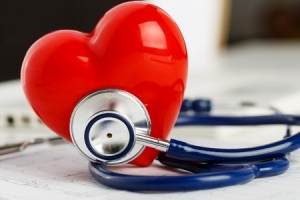February is American Heart Health Month! The heart needs a lot of help in order to stay strong and healthy, but it’s easy for you to make some daily changes that will keep your heart ticking!
Join us during American Heart Health Month as we put in the time and effort to care for our hearts. This month we will be challenging ourselves to complete “28-Days to a Healthy Heart,” inspired by The Heart Truth.
Heart disease is the leading cause of death among both men and women. Also, one in every three adults in the United States has high blood pressure, which can not only damage your heart, but also your arteries, brain, and kidneys. Put yourself to the test every day in the month of February to do more for your heart.
Download the attached “28-Days to a Healthy Heart” Calendar to keep track of your daily heart-healthy tasks!
Be sure to follow us as we take part in this month-long challenge: we will be sharing our progress on our Instagram (@thealphagroupincma) and Facebook pages. Feel free to share your progress using #alphacares and #myheart28 !
When we make an effort to care for our heart, we will definitely reap the benefits!
Don’t wait to get help if you experience any of these heart attack warning signs. Although some heart attacks are sudden and intense, most start slowly, with mild pain or discomfort. Pay attention to your body — and call 911 if you feel:
- Chest discomfort. Most heart attacks involve discomfort in the center of the chest that lasts more than a few minutes, or that goes away and comes back. It can feel like uncomfortable pressure, squeezing, fullness or pain.
- Discomfort in other areas of the upper body. Symptoms can include pain or discomfort in one or both arms, the back, neck, jaw or stomach.
- Shortness of breath with or without chest discomfort.
- Other signs may include breaking out in a cold sweat, nausea or lightheadedness.
Download our heart attack warning signs infographic.
Symptoms Vary Between Men and Women
As with men, women's most common heart attack symptom is chest pain or discomfort. But women are somewhat more likely than men to experience some of the other common symptoms, particularly shortness of breath, nausea/vomiting, and back or jaw pain. Learn about the warning signs of heart attack in women.
Act Fast
Learn the signs, but remember this: Even if you're not sure it's a heart attack, have it checked out. Minutes matter! Fast action can save lives — maybe your own. Don't wait - call 911 or your emergency response number.
Call 911
Calling 911 is almost always the fastest way to get lifesaving treatment. Emergency medical services (EMS) staff can begin treatment when they arrive — up to an hour sooner than if someone gets to the hospital by car. EMS staff are also trained to revive someone whose heart has stopped. Patients with chest pain who arrive by ambulance usually receive faster treatment at the hospital, too. It is best to call EMS for rapid transport to the emergency room.
Orginally published by: http://www.heart.org/

